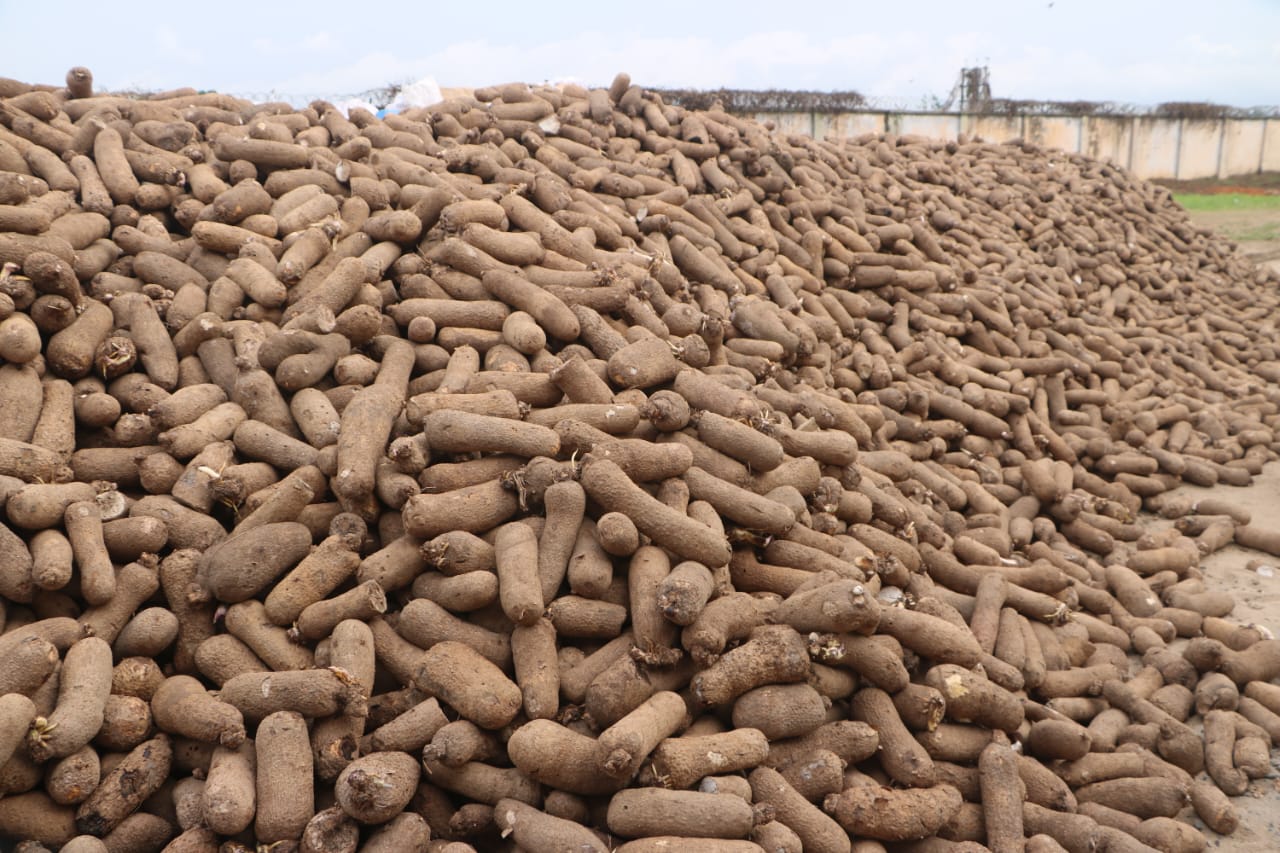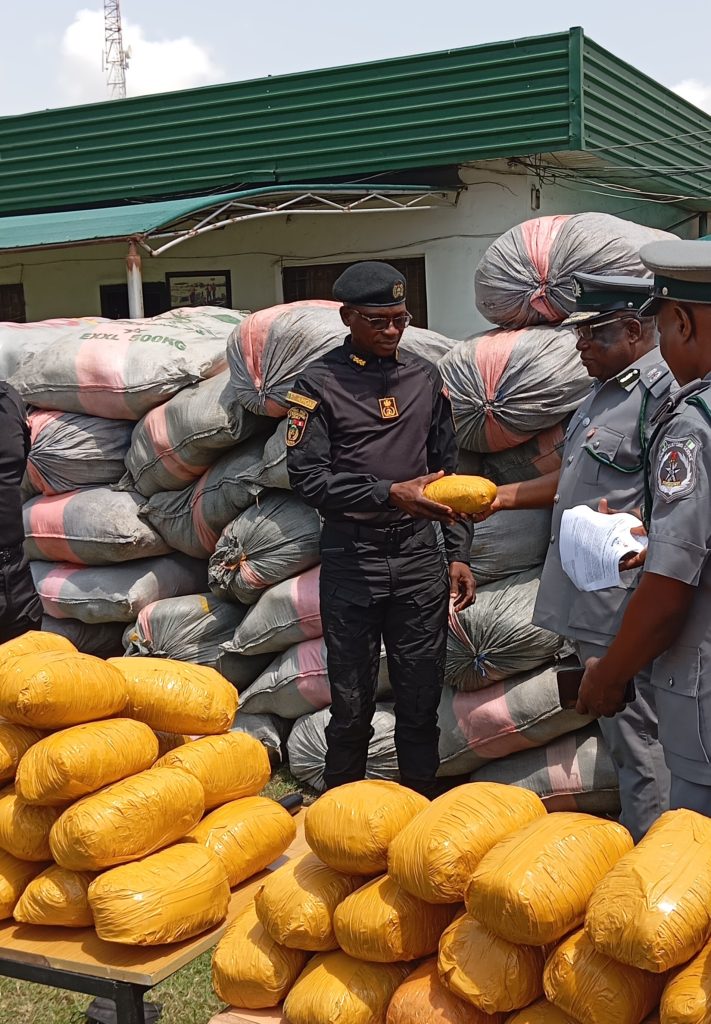Agriculture
TRANSFORMATION IN THE AGRICULTURAL SECTOR FROM THE PRE-COLONIAL AND POST-COLONIAL PERIOD – ENOCH ABRAHAM

Agricultural sector and its activity is primal in the economy of Nigeria which formed the means of livelihood of the people and is a strong factor in the rise of states and empires just as it is everywhere else in the world.
According to Evans Pritchards, “The first evolution that transformed human economy gave man control over his own food supply.
Man began to plant, cultivate and improve by selection of edible grasses, roots, and trees. This economic advancement has been described as “Neolithic revolution”.
Also in modern times, in pre-colonial Nigeria, a major determining factor for the choice of settlement was the availability of favourable climate, free of epidemics, fertile land suitable for cultivation and grazing, congenial littoral environment for fishing and security such as absence of war and other natural and supernatural disasters.
CLICK HERE TO WATCH OUR VIDEOS
In pre-colonial Nigeria, farmers depended on implements such as digging sticks, hoes, cutlasses and sickles. At this time, there was nothing like transformation in Agriculture. The common crops produced based on territorial specialization included yam, okra, maize, cocoyam, cassava, plantains, bananas, kolanuts and oil palm.
The independent growth and antiquity of Agriculture in Africa and Nigeria in particular, has been strongly proven by some African economic historians.
Among them was Murdock, an ethnographer who argued that agriculture began in the upper Niger area among the Mende-speaking people in about 5000 BC basing his research on yam cultivation in this region.
AGRICULTURE SECTOR IN THE COLONIAL EPOCH
Agricultural sector is fundamental to the growth and development of any nation. In most developing economies, agriculture constitutes major economic activities of the people, either as producer, seller or marketers. Agriculture therefore serves as the main foreign exchange earnings and major source of revenue for the government.
COLONIAL INTERVENTION IN AGRICULTURE
With the intervention of the colonial government, the transformation in agricultural sector in Western Nigeria occurred in response to changing political, social and economic conditions.
A common interpretation of the change was that state intervention became the strongest factor in inducing agricultural development. Although the colonial state did not adopt a radical transformation of the prevailing conditions of production.
It therefore began to employ a series of political and economic instruments to induce Agricultural producers to expand their output. Those strategies employed by the colonial state included forced cultivation, imposition of taxation and expanded operations by European merchant firms.
Also, marketing boards came with their controlled commodity marketing orientation which became the major tool for harmonizing agrarian economic patterns. This happens to be another form of transformation in Agriculture.
The colonial government to improve upon the efficiency of the farmer’s production and its capacity to meet market demands adopted various interventionist programs that would enhance increased production.
YOU CAN ALSO READ:
Nigeria Oil Firm Records Lowest in 18 Years, Drops to $19.71/b
FG Authorized Quarantine Agency To Resume Ports Export Certification Duties
Extortion’: Group Claims Loss Of Over N50 Million Worth Of Donkey Skins In Nigeria
ADVERTISEMENT

ADVERTISEMENT
Agriculture
Customs Katsina Command Releases Six Intercepted Grain Trucks to Owners

Author: Abass Quadri.
The Nigeria Customs Service (NCS), Katsina Command, has handed over six intercepted trucks of assorted grains to the rightful owners in the state as directed by President Bola Ahmed Tinubu.
In a press statement signed by the Command’s Public Relations Officer, Superintendent of Customs Tahir Balarabe, the Command, in collaboration with the Federal Operations Unit Zone B, had earlier intercepted the six (6) trucks on the 18 of February 2024 along Kwanar Gwanti, Dogon Hawa road Mai, adua Local Government Area of the state on their way out of the country.

Handing over the grains to the owners on Wednesday, March 13, 2024, the Customs Area Controller, Comptroller Mohammed Umar, explained that following the directive of President Tinubu to release all assorted grains under the custody of the Nigeria Customs Service, “Today, we hereby formally hand over six trucks and their contains to owners.”
“The Comptroller General of Customs (CGC), during his official working visit to Katsina, passed across the presidential directive, which mandated the returns of detained food items to owners, on the condition that they are to be sold in the Nigerian markets to ensure food security and alleviate the hardship faced in the country.” He added.

He stated that to ensure compliance, the Command would collaborate with the Customs Intelligence Unit (CIU), Federal Operation Unit (FOU B), and the Joint Border Patrol Team (JBPT) to monitor the sales of the released grains to ensure that they are not smuggled out of the country.
The CAC highlighted that the service under the leadership of the CGC, Bashir Adewale Adeniyi MFR and his management team are committed to fostering constructive dialogue and collaboration with the border communities to ensure security and prosperity in the country.
He however, called on the public to be vigilant and provide credible information to the Nigeria Customs Service that will assist in curtailing the smuggling of foodstuff and other essential commodities out of the country.
Receiving the items on behalf of the owners, the Chairman of Mai’adua Local Government Area, Hon. Salisu Mamman NaAllah expressed gratitude to the President for the kind gesture while assuring that the owners of the released grains will adhere strictly to the presidential directive.
He extended appreciation to the Comptroller General of Customs for his recent visit to the Mai’adua Community and his prompt positive response to complaints. Also, he commended the effort of the Katsina Customs Area Controller for his cordial relationship with the border communities.
Agriculture
Customs Eastern Marine Seizes Truckloads of Yam Tubers, Others with N250M DPV

… Vows to Intensify Fight Against Smuggling
Author: Ibe Wada.
The Nigeria Customs Service (NCS), Eastern Marine Command (EMC), has seized three truckloads of yam tubers and other assorted items loaded onto a boat, intended for illegal exportation through the waterways of Isaka in Oron to neighboring countries, such as Cameroon.


The Customs Area Controller (CAC), Comptroller, Mike Ugbagu, revealed this during a press briefing at the Command’s Headquarters on Thursday, 7 March 2024, in Porthacourt.
The CAC emphasized the necessity for proper documentation and adherence to export procedures, stating that attempting to transport goods through the creeks without following the required protocols constitutes smuggling, punishable under the law.
He explained that the success in intercepting the seizures, was attributed to the continuous surveillance and strategic efforts of Eastern Marine operatives, who diligently patrol the creeks and beaches of the Southern waterways.
He said the command’s ability to conduct effective surveillance “is by the provision of fast logistic boats and ballistic gunboats by the NCS Management.”
Highlighting the Command anti-smuggling activities In January, February, and early March 2024, the CAC noted that the command seized various contraband items, including petroleum products, used shoes, foreign rice, and used tires, with a combined Duty Paid Value (DPV) estimated at approximately N250million.
He further stated that Five suspects were apprehended in connection with the seizures and have been subjected to ongoing prosecution procedures.
Comptroller Ugbagu reiterated the Command’s firm stance against smuggling activities, warning smugglers and would-be perpetrators of the consequences of their actions.
He emphasized the importance of patriotism, particularly in safeguarding essential commodities during a time of food shortages within the Country.
Agriculture
Nigeria Customs Western Marine Command Hands Over Seized Marijuana Worth N700M to NDLEA

Author: Abass Quadri.
The Nigeria Customs Service (NCS) Western Marine Command has handed over 120 sacks containing 10,551 loaves of Cannabis Sativa to the National Drug Law Enforcement Agency (NDLEA).
In a press briefing held at the command on Monday, 4th March 2024, the Customs Area Controller, Comptroller Odaudu Salefu, revealed that the seizure has a Duty Paid Value (DPV) of N704.5 million.

According to him, the seizure is a product of the command’s wide intelligence network.
He said, With suspects of these trades still at large, we will now work with NDLEA to effect the arrest of these wicked traders.
“The 120 bags handed over today were seizures in 3 different operations at Jegemo Island opposite Iworo Ajido Waterfront and Asipa Beach along Seme border on the 29th November 2023, 2nd December 2023, and 19th January 2024.”
Comptroller Salefu restated the Command’s commitment to safeguarding the Nation’s economic interest by working with sister agencies whenever necessary.
He also called on all Nigerians to desist from illicit and illegal cross-border trade practices as it is terrible for the general economy, health and welfare of citizens.
Receiving the items, the NDLEA Commander, Paul Ahom, appreciated the CAC for following the existing synergy between the NCS and the agency.
He assured that the NDLEA will continue to build on its partnership with Nigeria Customs in a bid to curb the smuggling of drugs into the country.
-

 Revenue Streams2 years ago
Revenue Streams2 years agoCommunication Ministry Gives Zero Allocation to Nipost Out of N137.2billion Capital Votes
-

 Customs Corner2 years ago
Customs Corner2 years agoCustoms Emerges Champions of 2022, Male, Female National Volleyball Super Cup
-

 Newsroom4 years ago
Newsroom4 years agoNNPC Blames #EndSARS Protests, As Fuel Queues Return
-

 ICT5 years ago
ICT5 years agoFinally! Huawei Launched Harmony OS | Let the Rivalry Begins with AndrodOS
-

 Naija News6 years ago
Naija News6 years agoINEC registers 23 new political parties. YES, RAP, UP, 20 other parties
-

 COVID-194 years ago
COVID-194 years agoVaccine Trials Starts Round The World: All You Need to Know
-

 Customs Corner3 years ago
Customs Corner3 years agoArea Controller, Murtala Muhammed International Airport Command Passes On
-

 Foreign2 years ago
Foreign2 years agoPhilippines’ Duterte Blocks Bill to Register Social Media Users










